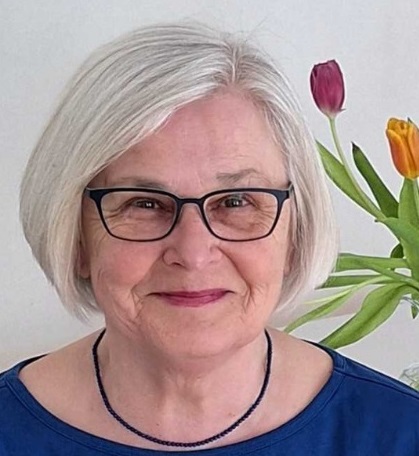Professorin Dr. Birgitta Wöhrl

Professor Dr. Birgitta Wöhrl has been an academic councillor since 2002 and a professor at the Chair of Biochemistry IV since 2005, including 16 years as a voluntary (university) gender equality officer. Since 2023, she has been working only on a voluntary basis and is otherwise retired.
- Question 1: What influenced you most during your time at the University of Bayreuth as a biologist/virologist?
During my active time, I worked on pollen allergies and virological topics. I’ve always been fascinated by how viruses like HIV or coronavirus, with only a few genes, can still cause severe illness in humans. Discovering how they manage to do that is incredibly exciting. The COVID-19 pandemic was a defining experience for everyone, not just for me as a virologist. As a university representative during that time, I was involved in many difficult decisions discussed in executive meetings, such as hygiene measures, vaccination campaigns, and event cancellations. Due to widespread misinformation in the media, I decided to use my expertise to give educational talks on coronavirus and new vaccines, at the university, in schools, and online. At the same time, I also temporarily led our department. That period made it very clear to me how vital solidarity and support from staff members are, both from my department and from the Office of Equal Opportunity, in order to manage such a wide range of responsibilities.
- Question 2: What inspired you most about your role as Gender Equality Officer?
I have been concerned with the unequal treatment of women in academia (and beyond) since my student days. As a Gender Equality Officer for the faculty, and later as Deputy and then University Gender Equality Officer, I was able to initiate and implement many changes and bring greater awareness to key issues, even at the executive level of the university. One initiative especially close to my heart during my time as Deputy University Gender Equality Officer was the development of the university's coaching program for women. That program still exists today and has evolved into a professional coaching and mentoring program with its own coordinator. Another key project was the MINT support program, designed to inspire girls and young women to pursue the natural sciences through events held at various university departments. As a biologist, that was particularly meaningful to me. The “Professorinnenprogramm” (Female Professors Program), launched in 2009, has also become a successful instrument for increasing the number of women appointed to professorships. During my tenure as University Gender Equality Officer, we also developed and successfully implemented the empowerMINTDoc program, which supported female students pursuing or planning to pursue a doctorate in the natural sciences, up to 2024. On the policy side, contributing to the discussions around the reform of the Bavarian Higher Education Act was certainly a major milestone. In addition, we began preparing a proposal for the BMBF funding call “Focusing on Gender Aspects,” which has since been approved.
- Question 3: What message would you like to share with young women today for their future?
Don’t let anyone walk over you, and support one another. Make sure you are financially independent, only then can you make free and empowered decisions. Working part-time until your children are grown is not a solution; it’s actually one of the main reasons women face poverty in old age!
